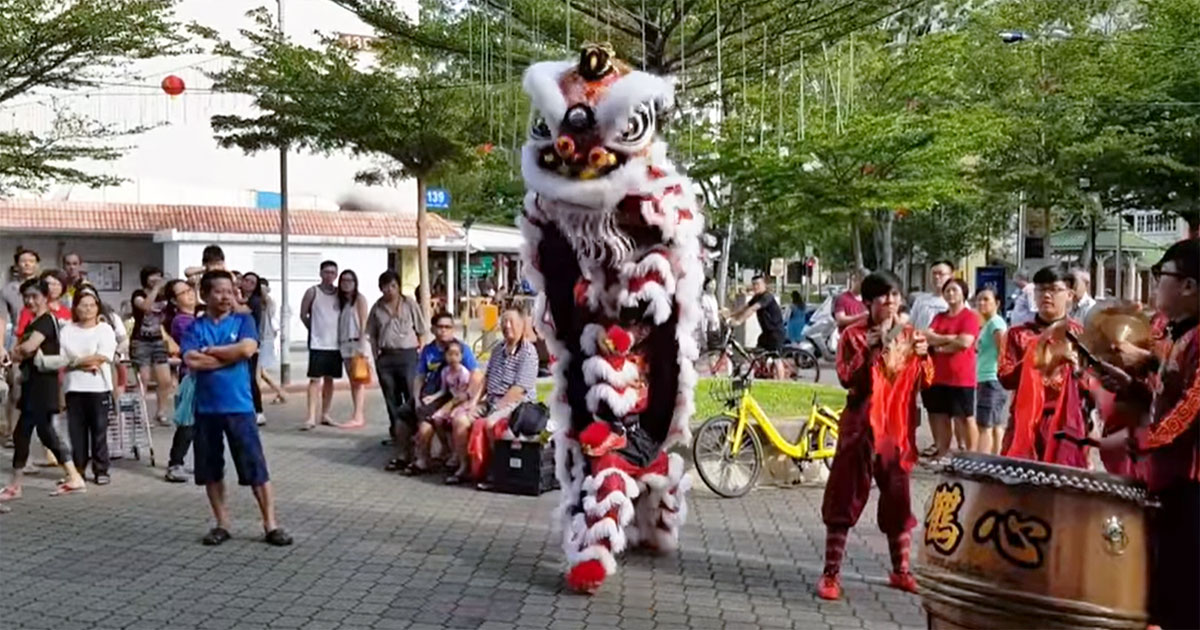Lion dances are not allowed to be held at several venues in Singapore this 2021 Chinese New Year, dealing a blow to many troupes here.
The Singapore Wushu Dragon and Lion Dance Federation announced on Sunday, Jan. 17, the stricter infection control measures for lion dance troupes this Year of the Ox due to the Covid-19 restrictions.
According to the national organisation, lion dance performances cannot be held at coffee shops, food centres and markets, as well as residential homes.
This is to prevent crowds from gathering.
Only 8 performers allowed
Another measure, which effectively puts an end to dragon dances, requires performers to be limited to eight individuals only.
Dragon dances cannot function as a result, as they require many more participants.
Performers are also required to wear masks, with only those controlling the head and the tail during the performance excluded.
The federation has significant say over the rules as it issues permits for "cai qing" activities, and oversees wushu, dragon and lion dance activities and its promotion in Singapore.
The "cai qing" ritual typically involves plucking a head of lettuce, which is held at home or business premises to usher in good luck and fortune.
Some public venues can still host lion dances
However, not all performances have been banned at public venues in Singapore.
Lion dances that take place in larger venues, such as offices, factories, hotels, temples, and shops in mega shopping centres are allowed to go on.
These activities can carry on so long as participants adhere to social distancing rules, the federation ruled.
According to The Straits Times, president of the federation, Ang Mong Seng, explained why troupes have been given the go-ahead for these other locations: "The idea for cai qing this year is a 'private' event with no customers or patrons."
And for such performances to take place, no more than 50 people are allowed at these venues.
Troupes will not make money
Troupes' earnings this year will take a hit as revenue has mostly been derived from homeowners and small businesses.
But the rules and how they are derived have left some troupes frustrated.
One leader of a troupe told ST: "What I don't understand is how it will be allowed in shopping malls but not coffee shops when the crowds in shopping malls are so big."
So far, 85 lion dance troupes have applied for the permit as of Jan. 17, the federation said.
Permits cheaper this year
Due to the many measures in place and their impact on revenue, it is foreseeable for many troupes to pull out completely, ST reported.
The only upside is that the cost of permits has gone down, but it would have insignificant impact on earnings.
A cai qing permit costs S$50 for 16 days this year.
Last year, it was S$150, excluding the goods and services tax.
But on the flipside, troupes will also have to submit more paperwork to the police via the federation, such as providing the daily schedules of their movement from venue to venue.
Top photo via
If you like what you read, follow us on Facebook, Instagram, Twitter and Telegram to get the latest updates.
